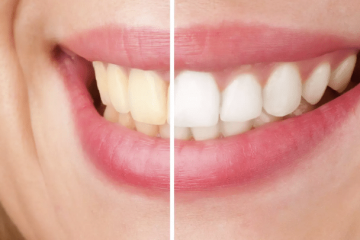
Like acne elsewhere on the body, forehead acne can affect anyone of any age. This condition is often manifested as blackheads or whiteheads on the forehead. Understanding the causes is essential for prevention and treatment. This article explores the factors that contribute to forehead acne, and offers essential insight into how to manage and prevent this condition.
1. Hormonal Imbalances
One of the main causes of acne is hormonal changes, which include forehead acne. Hormone levels can fluctuate a lot during puberty, menstruation, pregnancy or other conditions such as polycystic Ovarian Syndrome (PCOS). Androgens (male hormones) can increase the production of sebum in skin. Sebum produced in excess can clog the pores, causing acne-causing bacteria to thrive.
Important Points
- Hormonal fluctuations may increase sebum.
- Both men and woman can suffer from hormone-induced acne.
- Acne can be exacerbated by conditions like PCOS.
2. Poor Skin Care and Hygiene Habits
If you neglect your skincare routine, dirt, dead skin cells, and oil can accumulate on the forehead. This buildup may clog the pores and cause acne. Also, harsh skincare products or those that are not suitable can irritate skin and worsen acne.
Important Points
- Regular cleaning helps to remove excess dirt and oil.
- It is important to choose non-comedogenic products (non-pore clogging).
- Over-washing may strip skin of its natural oils and worsen acne.
3. Hair and Haircare Products
Hair can play a major role in causing forehead acne. Hair products such as shampoos, conditioners and styling gels can cause pores to clog up on the forehead. It is particularly true for those with oily or greasy hair.
Important Points
- Keep your hair away from your forehead.
- Haircare products with less pore-clogging potential are best.
- Avoid hair products that contain silicones or heavy oils.
4. Diet and Nutrition
Diet is crucial for skin health. Foods with a high glycemic rating, like sugary snacks or refined carbohydrates, can cause blood sugar to spike and trigger hormonal reactions that lead to an increase in oil production and inflammation. Some people have been affected by acne when they consume dairy products, especially skim milk.
Important Points
- Eat a healthy diet that is rich in fruits and vegetables.
- Avoid eating too much sugary or processed food.
- Check your skin to see if dairy consumption affects it.
5. Stress
Stress is well known to trigger acne. Stress can cause the body to release cortisol – a hormone which increases oil production. Stress can also weaken your immune system and make it difficult for you to fight acne-causing bacteria.
Important Points
- Stress can be managed by using techniques such as meditation, exercise and sufficient sleep.
- Reduce stress by using mindfulness techniques
- Understanding the relationship between mental health, skin health and wellbeing.
6. Genetic Factors
Acne is often influenced by genetics. It is more likely that you will develop acne if your parents or siblings had it. Genetic factors can affect the size and activity sebaceous ducts as well as your body’s response to acne-causing bacteria.
Important Points
- Know your family history of acne.
- Customize your skincare regimen to your skin type, genetics and predispositions.
- If acne is persistent or severe, consult a dermatologist to get personalized advice.
7. Environmental Factors
Headache can be caused by environmental factors, such as pollution, humidity and exposure to certain chemicals. Dust and pollutants can settle onto the skin and cause inflammation. High humidity can cause oil production and increased sweating, which can combine with bacteria to cause acne.
Important Points
- Regular cleansing and protection of your skin will help protect it from pollution.
- To prevent bacteria and dirt from spreading, avoid touching your face often.
- Adapt your skincare routine to the weather and environment.
8. Cosmetic Products
Acne cosmetica is a form of acne caused by the use of certain cosmetics. Acne cosmetica occurs when skin products, such as sunscreen, makeup or moisturizers, clog the pores. This problem is more common with heavy, oil-based products, but water-based products may also cause it.
Important Points
- Make sure to choose makeup and skincare products that are non-comedogenic.
- Before going to sleep, remove all makeup.
- Make sure to clean your makeup brushes and applicators regularly.
9. Medical Conditions and Medicines
Some medical conditions and medications may also cause forehead acne. Hyperthyroidism, for example, can cause hormonal imbalance, and medications like lithium, corticosteroids, or certain anticonvulsants, can also trigger acne.
Important Points
- Talk to your doctor about possible side effects.
- When starting a new medication, monitor skin changes.
- Consult your doctor if you think a medical problem is causing the acne.
10. Personal Habits
Face acne can be caused by personal habits such as touching your face frequently, not changing pillowcases or helmets often, and wearing hats. These habits can cause breakouts and clogged pores by transferring bacteria and oil to the skin.
Important Points
- Avoid touching your facial area unnecessarily.
- Regularly change pillowcases, hats and other accessories.
- Sanitize and clean all items that touch your forehead.
Prevention and Treatment Strategies
The best way to manage forehead acne is by combining preventative measures with appropriate treatments. Consider these strategies:
Preventive measures:
1. Maintain a Consistent Skincare Routine:
- Use a gentle non-comedogenic face wash twice a day.
- Use a light, non-oily moisturizer.
- Use a broad spectrum sunscreen every day.
2. Watch Your Diet:
- Include foods that are rich in omega-3 fats and antioxidants.
- If you notice breakouts, reduce your intake of dairy products and foods with a high glycemic-index.
3. Manage Stress:
- Exercise regularly and practice stress-relieving techniques such as yoga, meditation or regular exercise.
- Sleep is essential for good health.
4. Take Care of Your Hair:
- Avoid letting your hair rest on your forehead.
- Haircare products free of silicones and heavy oils are best.
5. Stay Hydrated :
- Water helps to detoxify and hydrate the skin.
Treatment Options:
1. Topical Treatments:
- There are several options available over-the-counter, including benzoyl, salicylic, and alpha-hydroxy acids.
- For more severe cases, prescription treatments such as retinoids or antibiotics may be required.
2. Oral Medications :
- If acne is persistent or severe, you can try antibiotics, hormonal treatment (such as birth control pills) and isotretinoin.
3. Professional Treatments:
- Acne can be effectively treated by dermatologists using chemical peels and laser therapy.
4. Natural Remedies:
- Aloe vera, tea tree oil and green tea extract have anti-inflammatory, anti-bacterial properties which can reduce acne.
The conclusion of the article is:
It can be difficult to deal with forehead acne, but if you understand its causes and implement effective prevention and treatment strategies, it can improve your skin’s health. Maintaining good skincare habits and managing stress while watching your diet and seeking professional assistance when needed can help you keep forehead acne in check and achieve healthier, clearer skin. Consistency and patience are important, since it may take some time before treatments show any significant improvement.
Tips to Provide Better In-Home Care
July 18, 20248 Impressive Benefits of Carrot Juice
June 4, 2024
Leave a reply Cancel reply
You must be logged in to post a comment.
-
One Health Pass Philippines
August 4, 2023 -
How to Solve Common TV Aerial Issues
July 26, 2024





